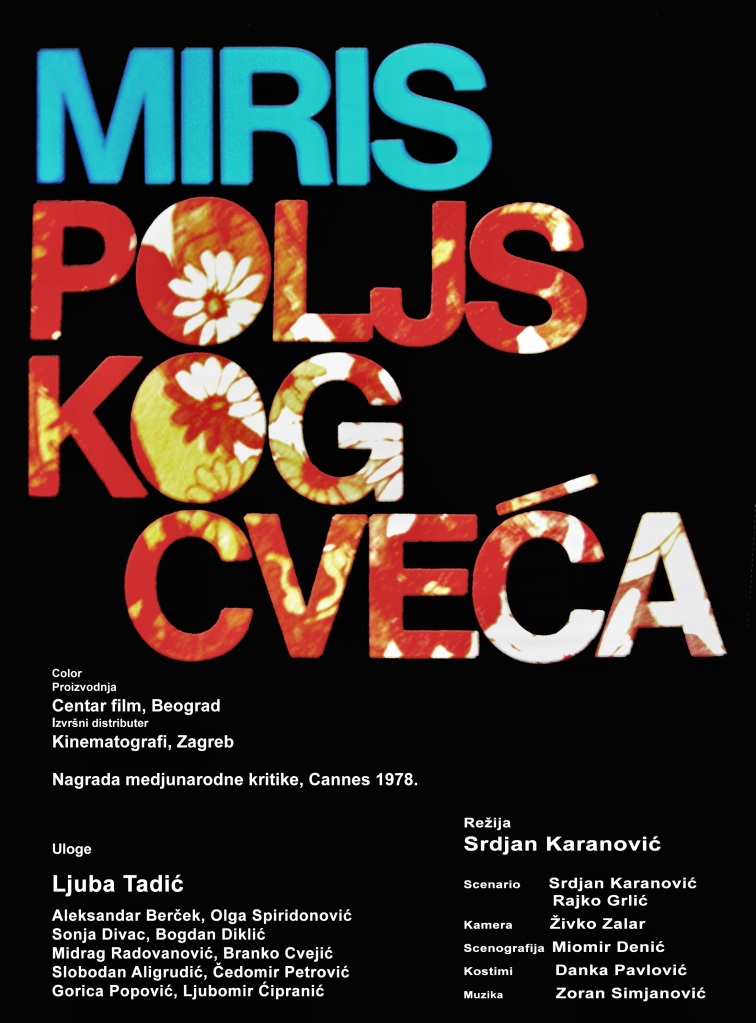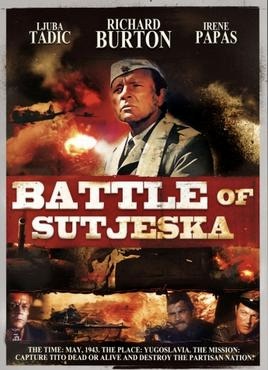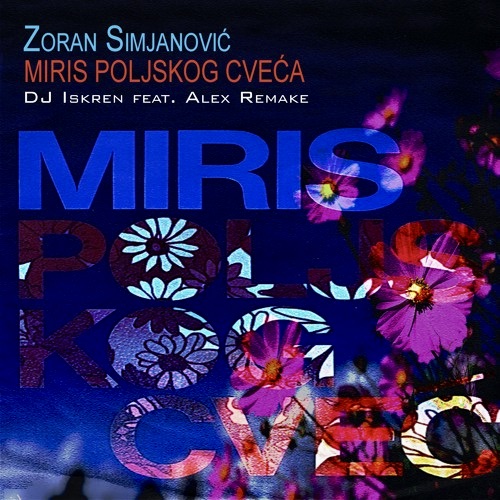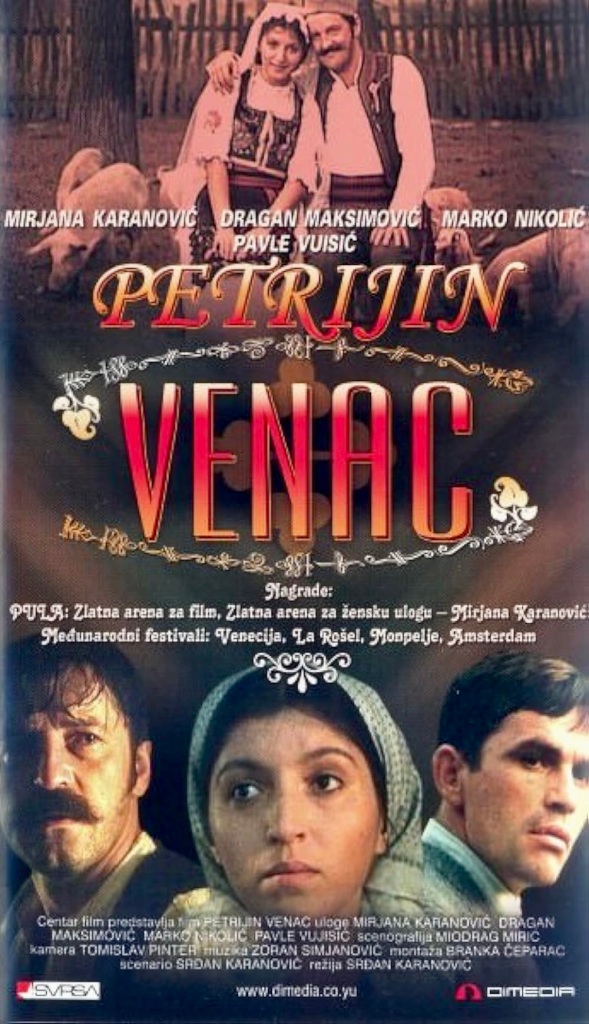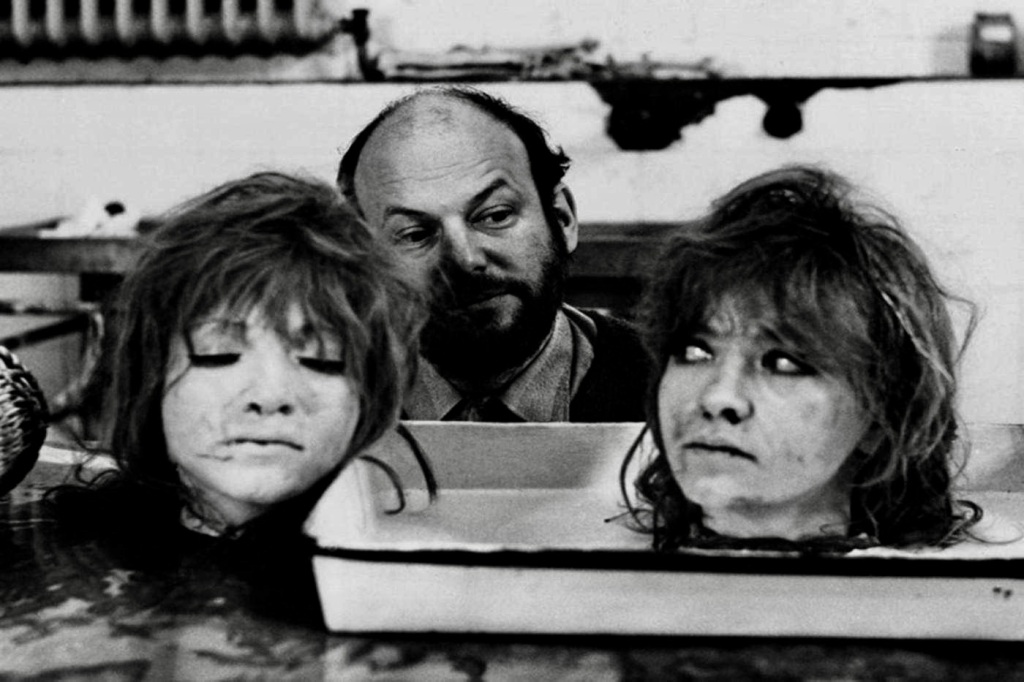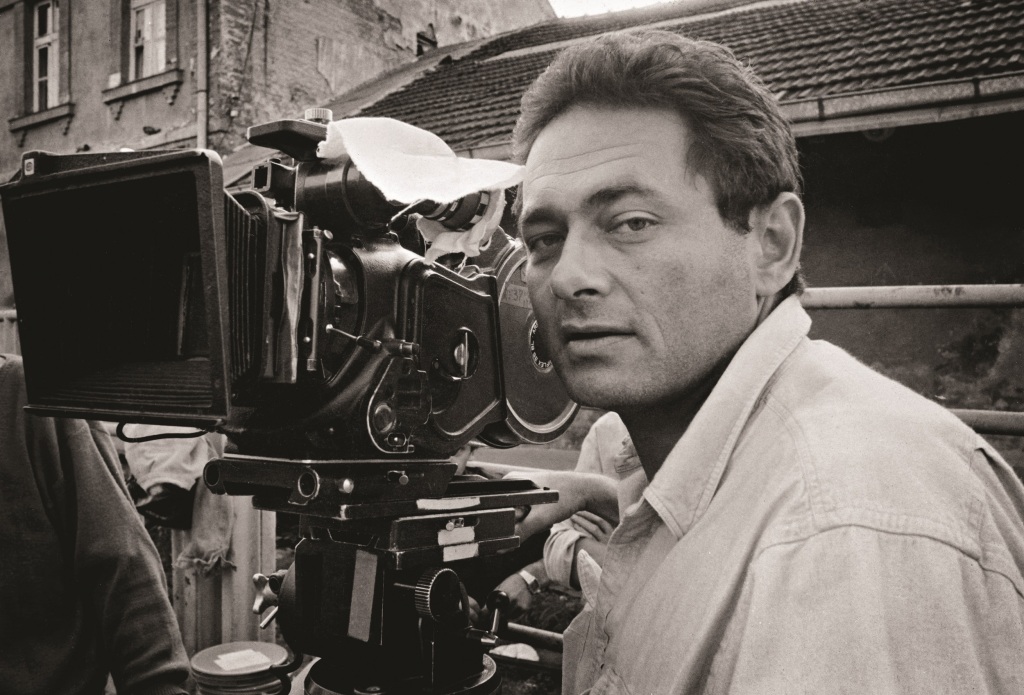Have you ever felt like you were not leading the life you imagined for yourself or worse – you had achieved success in your field but felt as if everything had become a boring, mechanical routine and you were trapped? This is the existential dilemma that is facing Ivan Vasiljevic (Ljuba Tadic), a famous theater actor, who is currently preparing for a production of Oscar Wilde’s An Ideal Husband. The day before the play’s premiere, Ivan walks out during the rehearsal, refusing to return, and decides to abandon everything, including his wife. He joins his friend Jeca Smrda (Nemanja Zivic) aboard a rundown barge and settles into a life of leisure with no responsibilities as they drift along the shore of the Danube. While Ivan’s nonconformist rebellion seems to mirror the behavior of free-spirited characters in American films like Murray (Jason Robards Jr.) in A Thousand Clowns (1965) or the poet Samson (Sean Connery) in A Fine Madness (1966), his journey, as depicted in Miris Poljskog Cveca (English title: The Fragrance of Wild Flowers, 1977), becomes a wry satire and meditation on one man’s life in Yugoslavia under a Socialist regime. But the film is not a political critique and opts instead for an offbeat character study.

In his second feature film, Serbian director Srdjan Karanovic stated that he wanted to make a ‘kind of documentary fairy tale’ that begins with a realistic premise before drifting into the fantastic. Helping to achieve that transition is lead actor Ljuba Tadic, who is playing a semi-autobiographical version of himself (we actually see some photographs of Tadic, one of Yugoslavia’s most famous actors, on film sets with such international thespians as Ingrid Thulin, Vittorio Gassman and Robert De Niro).
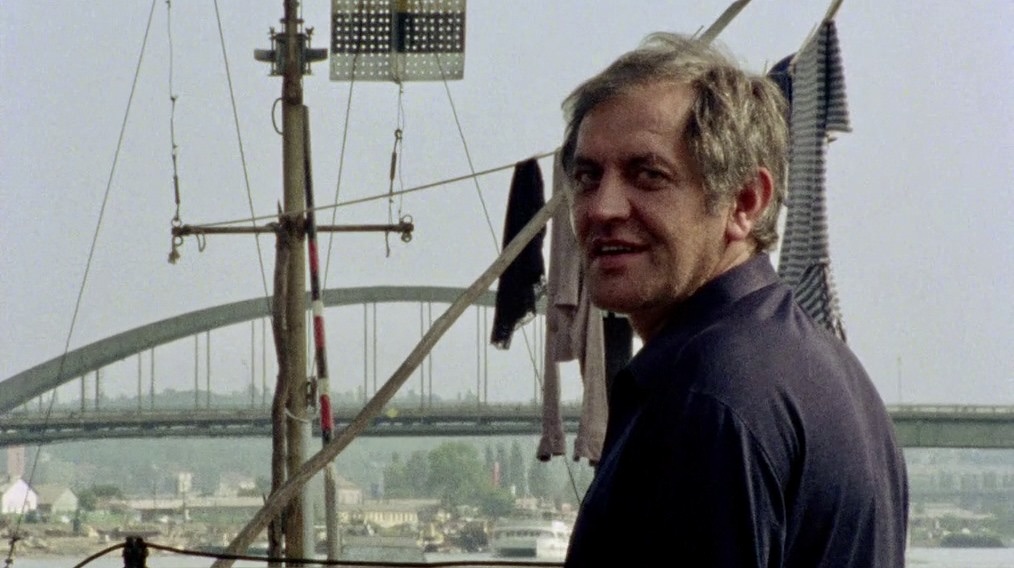
Ivan’s refusal to return to the stage has repercussions that go far beyond the fate of his new play as well as that of his stage director and cast and crew members. The actor is also being profiled for a television documentary by a group of filmmakers who are now faced with changing the structure of their movie to reflect Ivan’s radical mid-life shift. But what is completely unexpected is how Ivan’s attempt to start a new life for himself affects all of the people around him from his fans to the media and society at large. At this point, Karanovic’s movie becomes less about Ivan and more about the peripheral characters in his life….and what an eccentric bunch they are! (Many of them are also played by non-professional actors).
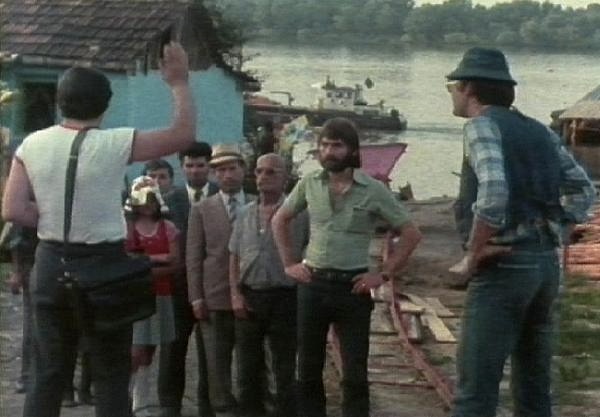
Sonja (Sonja Divac) is a promiscuous young actress who becomes infatuated by Ivan’s flight from mainstream society and hooks up with him on the barge briefly. The director (Miodrag Radovanovic) of the TV documentary on the actor decides to pad his movie with local people who have become inspired by Ivan’s nonconformity like a man who runs backwards or a villager who reinvents himself as a cowboy inspired by western films. Mica (Milivoje ‘Mica’ Tomic), the owner of a riverside café which Ivan patronizes, becomes famous for his signature dish of tripe. Even Jeca, Ivan’s old pal, is inspired to change his ways and ends up proposing marriage to his long suffering but faithful mistress.
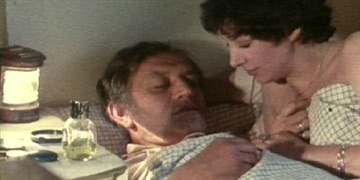
Adding an additional level of complexity to Ivan’s situation is a murder investigation surrounding the discovery of a drowned bride who was found floating in the river. As the list of suspects are narrowed down, the documentary filmmakers try to make a connection between the victim and Ivan, based on a photograph that shows the two of them together.
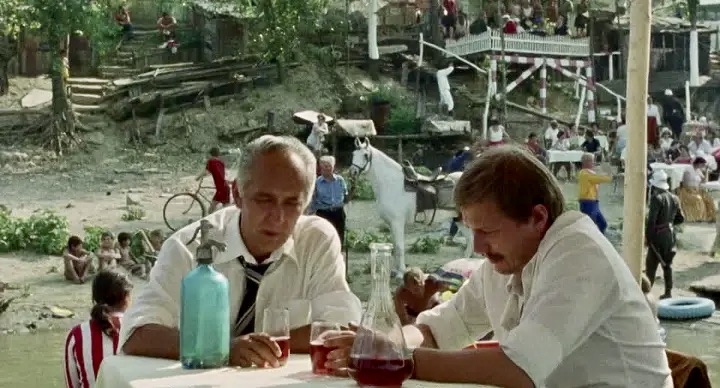
By the end of The Fragrance of Wild Flowers, the movie has transformed into a Felliniesque carnival with Ivan admitting defeat and returning to his former life and profession…but for how long? If nothing else, director Karanovic has raised important questions for the viewer. Are you living the life you want? Is it unrealistic to wish for something more?
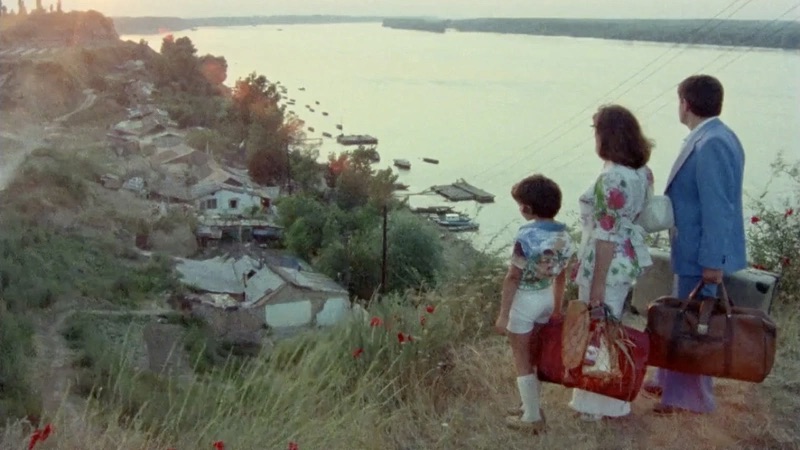
The most intriguing aspect of The Fragrance of Wild Flowers, at least for me, is its glimpse of rural life along the Danube during the reign of Tito and how the Yugoslavian people, especially the working class, endured during a repressive Communist bureaucracy. Sex, drinking, dancing, eating and music helped people embrace their humanity and forget their troubles temporarily. And the villagers and tourists glimpsed in this film are in party mode.
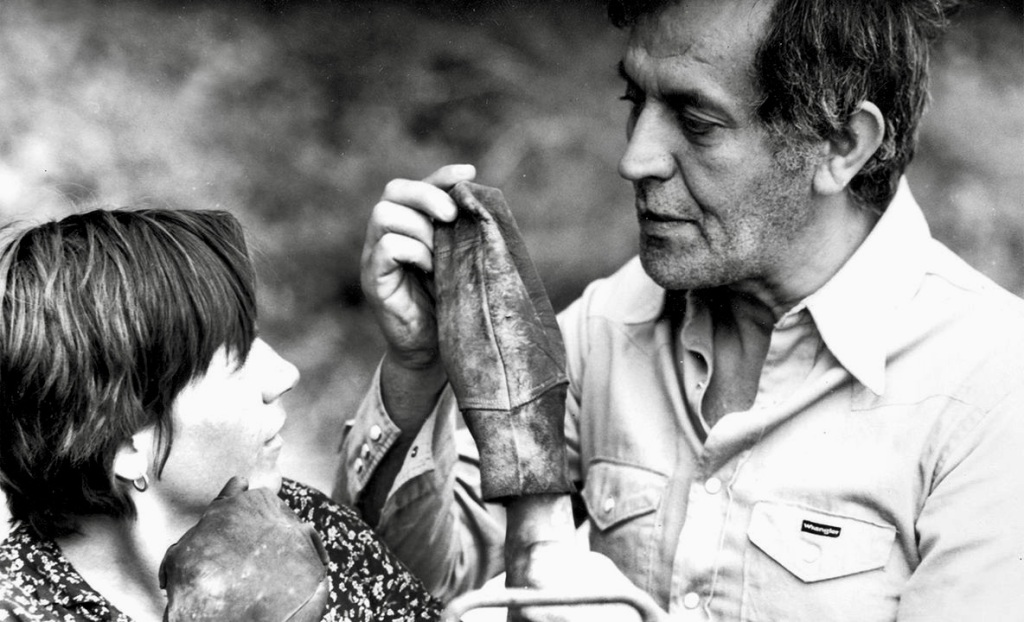
Ivan’s mid-life rebellion against his rut in life is a universal plight that anyone can empathize with but when he rants about living the best possible existence without having to recite the words of others you have to question his choice of profession. After all, he chose to be an actor. His refusal to discuss his feelings on the matter in detail with his wife, friends or the media make him somewhat enigmatic as the protagonist but Tadic’s charisma as a screen presence helps to make his character engaging.
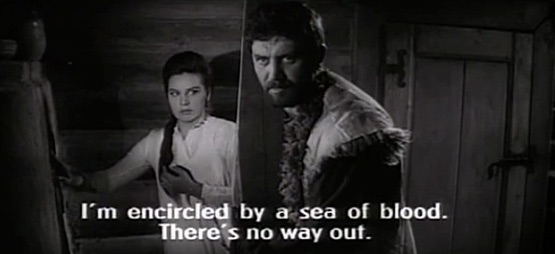
Cinephiles with a fondness for international cinema have probably seen Ljuba Tadic in films before and after The Fragrance of Wild Flowers. He has appeared in such varied fare as Andrzej Wajda’s Siberian Lady Macbeth (1962), Alberto Lattuada’s The Steppe (1962), Aleksandar Petrovic’s The Master and Margarita (1972), The Battle of Sutjeska (1973) with Richard Burton, Bunker Palace Hotel (1989) co-starring Jean-Louis Trintignant, and Ulysses’ Gaze (1995) from Greek director Theodoros Angelopoulos.
For some American viewers, the most problematic part of The Fragrance of Wild Flowers might be the depiction of the female characters, all of whom are subservient to the men in their lives but also highly critical of women like Sonja who flaunt their sexual freedom. Still, Karanovic’s film is recommended for its colorful and unconventional narrative arc and the engaging music by Zoran Simjanovic, which blends Yugoslavian folk music with electronic effects and offbeat instrumentation.
The film won the FIPRESCI prize at Cannes 1978 (it tied with Andrzej Wajda’s Man of Marble) and it also won three prizes at the Pula Film Festival of Yugoslavia including Best Director. Other award-winning films by Karanovic include Petrijin Venac (1980 – the film poster is pictured below), A Film with No Name (1989) and Loving Glances (2003).
Srdjan Karanovic was part of the Yugoslavian film movement in the late 70s/early 80s known as the “Czech School” because several of the rising young directors at that time – Karanovic, Goran Paskaljevic, Goran Markovic, Lordan Zafranovic and cinematographer Zivko Zalar (he filmed The Fragrance of Wild Flowers) – had all attended the Film and TV School of Academy of Performing Arts in Prague (FAMU). Their approach to film was more personal and character driven than the famous ‘Black Wave’ film movement in Yugoslavia during the late sixties and early seventies, which was more cynical, despairing and dark in its view of the country’s politics and society. Many of the ‘Black Wave’ filmmakers such as Dusan Makavejev (Man is Not a Bird, WR: Mysteries of the Organism) were banned by the government along with their movies.
In comparison, Karanovic’s The Fragrance of Wild Flowers is much more accessible, laid back and whimsical. It was also popular with Yugoslav audiences upon its release since it was less confrontational in exploring the contradictions and complexities of life in contemporary Yugoslavia (which today is divided into six independent states – Bosnia and Herzegovina, Croatia, Montenegro, North Macedonia, Serbia and Slovenia).
The Fragrance of Wild Flowers is not currently available for rental or purchase on any format in the U.S. but you can stream a decent print of it (with English subtitles) on the Cave of Forgotten Films website.
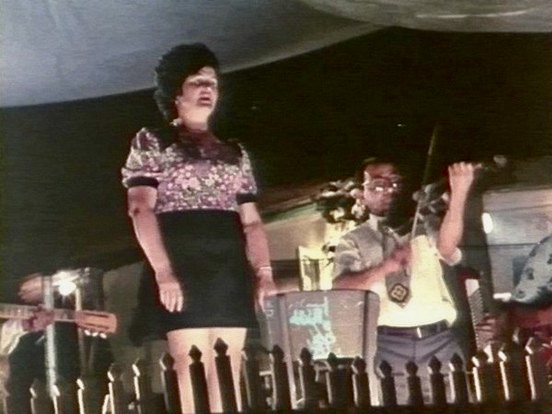
Other links of interest:
https://kinotuskanac.hr/en/director/karanovic-srdan
https://peoplepill.com/i/srdan-karanovic#google_vignette
https://www.tandfonline.com/doi/full/10.1080/2040350X.2021.2009231
https://www.youtube.com/results?search_query=Miris+poljskog+cveca+1977

